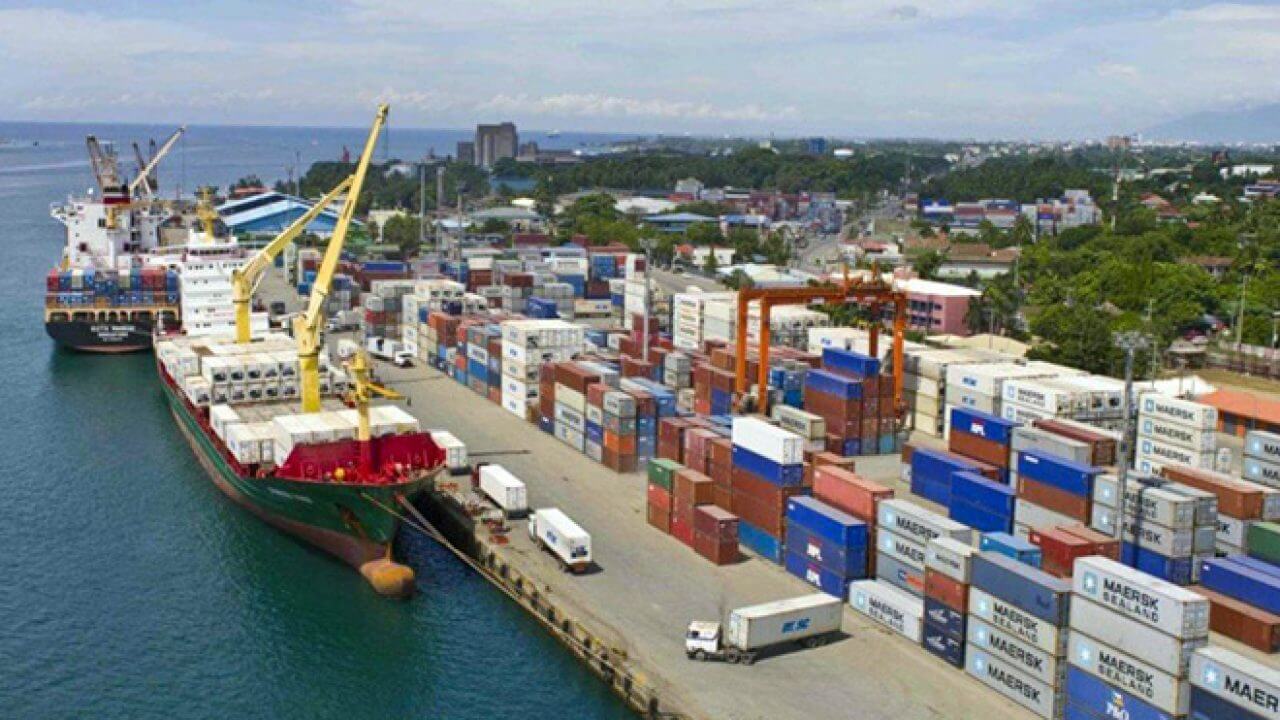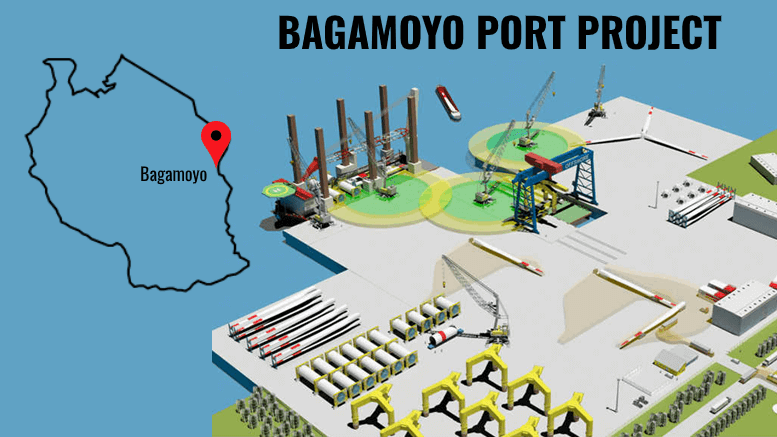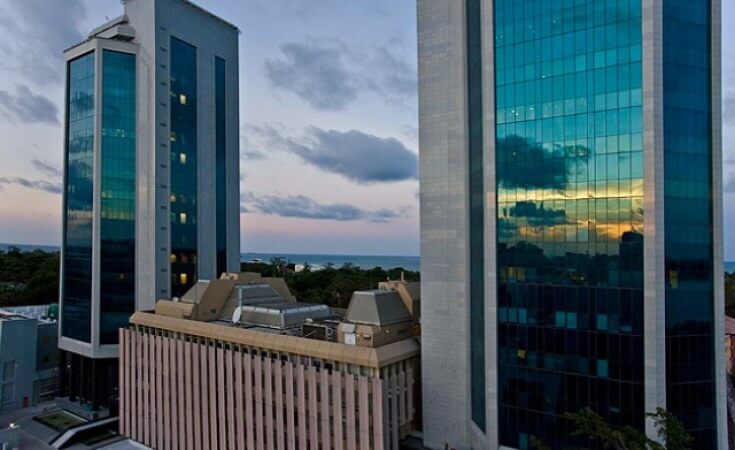The Tanzanian Government is set to allocate a budget proposal in the upcoming 2023/24 financial year to be used for the construction of part of the much awaited Bagamoyo port project through its internal funds.
The decision comes at a time when tender for the project have been invited in order to get a potential foreign investor to run the planned $10 billion project earlier backed by China Merchants Holdings International Co. Ltd.
This is after the prospective Chinese firm failed to comply by newly introduced contractual terms introduced by the sixth phase government in July 2021 an aspect that prompted the firm to pull out of the contractual deal it had signed ten years ago.

Senior official from Tanzania Ports Authority (TPA) revealed the plans saying that, “there is no way the government can do other than maximizing its efforts in order to transform the country through its ports into a regional trade and transport hub along Eastern Coast of Africa”.
The government had already paid 65.6bn/- ($ 28 million) to 2,180 registered landowners as compensation from an area earmarked for the project to pave the way for the construction to take place.
The TPA’s Director General Plasduce Mbossa confirmed to The Business Wiz that it was better to kick start the project using own funding this time around so as to bring hope for the nation as the government is looking for another foreign strategic investor to run the project.
According to him, the highly anticipated Bagamoyo port will have the capacity to handle larger ocean vessels than any other ports in the country which currently handles ships of 4,000 TEUs.
Construction of the port is part of ambitious target by TPA of expanding its contribution to Tanzania’s economy from the current 40 percent to 90 percent in the next few years as the authority accelerates the implementation of strategic port projects.
In March 2013, Tanzania signed a framework agreement with a Chinese investor for the construction of the port and a special economic zone at an event that was witnessed by visiting Chinese President XI Jinping at State House in Dar es Salaam.
The project is scheduled to be constructed on the shores of Indian Ocean includes an industrial economic zone located at Mbegani creek in Bagamoyo Municipal Council, 75 km (47 miles) north of Dar es Salaam commercial city.
The port would dwarf neighboring Kenya’s port at Mombasa, East Africa’s trade gateway some 300 km (180 miles) to the north, and include rail and road links to a region hoping to exploit new oil and gas finds.
It is meant to ease congestion at the port in the commercial Dar es Salaam city and transform a depressed area into a trade and manufacturing hub.
But it was unfortunate that the project was not implemented on time as when the fifth phase government under President John Magufuli assumed the office two years later, noted the conditions set by the investor were tantamount to selling Tanzania to China.
Three years later in 2019 the late President foiled the agreement saying it was a ‘looters’ den shrouded in grand corruption that was too exploitative and inappropriate and that its terms were not for the benefit of the country.
Among the stringent conditions which the late Magufuli revealed in a public meeting was that, the project terms required that the government should not develop any of its other ports bordering East Coast on fringes of Indian Ocean and should not have a say in its operations for 99 years instead 33 years according to the law.
The investors would operate free of charge throughout the years and that any loses that would be incurred could be compensated by the government, and that they would not be subjected for any payment of taxes whatsoever.
There would be no special status and that should not pay the market rate for water and electricity like any other investor.
That the investor could start any other business they deemed necessary within the port without government’s approval and were open to scrutiny and regulation by relevant agencies in line with law like any other investor.
But when President Samia Suluhu assumed the office in March 2021, she scrutinized the matter and realized its economic impact to the development of Tanzania nation in future.
Three months later, the Head of State formed a taskforce team which was commissioned to engage in fresh negotiations on 26 June 2021 during the 12th Summit of Tanzania National Business Council (TNBC) which was held in Dodoma capital city.
The President’s aim was to see that the government comes to good terms that would benefit the nation and not otherwise.
Tanzania’s technical team of negotiators was led by the Investment Minister, and included also the Permanent Secretaries responsible for Works and Transport, Finance and planning as well as Industry and Trade Ministries.
Others were representatives from the Tanzania Ports Authority (TPA), Export Processing Zones Authority (EPZA), Tanzania Revenue Authority (TRA) and TIB Development Bank.
Hardly 18 months now had the closed-door negotiations since it started in July 2021 failed to come up with a resolution on five punitive conditions earlier introduced by the foreign investor for the execution of the project.
At last, the meeting ended up in December 2022 in apparent deadlock after the Chinese firm failed to comply by new contractual conditions the sixth phase government had introduced, with the foreign investor China Merchants Holdings International has got back to China.
Speaking over the phone, the Minister for Works Professor Makame Mbarawa said in an exclusive interview that, “two sides have disagreed on new terms slated for negotiations of the infrastructure investment and that, the representatives of Chinese firm have already left the country”.
However, the Works Minister could not give further details as what had made the Chinese firm not to agree but disagree with the newly contractual terms when asked to elaborate, but maintained that both parties have not yet reached an agreed consensus.
“The closed-door negotiations have taken long time because the matter is very sensitive and need not rush for we want a win-win situation,” he affirmed.
What transpired after talks between the two parties remains a mystery and this has become an uphill battle now for ten years down the lane.
Investors have withdrawn from the formal negotiations living top government officials with hard task pinning good or bad labels on the latest developments in relation to the project.







